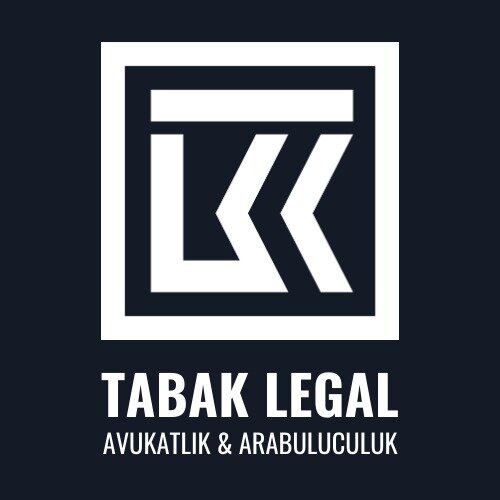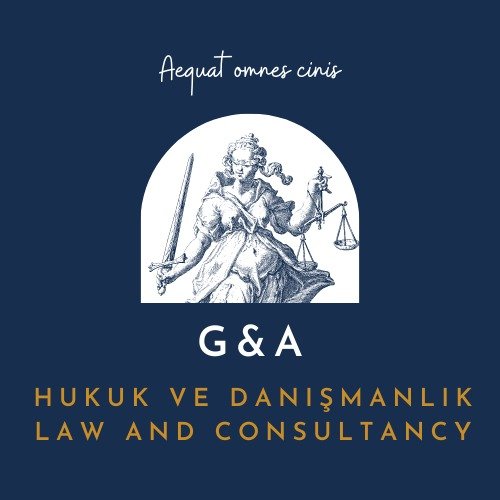Best Sexual Abuse Lawyers in Turkey
Share your needs with us, get contacted by law firms.
Free. Takes 2 min.
Or refine your search by selecting a city:
List of the best lawyers in Turkey
About Sexual Abuse Law in Turkey
Sexual abuse is a severe offense in Turkey, subject to strict legal penalties. The Turkish Penal Code defines sexual abuse as any non-consensual act of a sexual nature. This encompasses a broad spectrum of actions, including rape, sexual harassment, and sexual exploitation. Turkey has made several legal advancements in recent years to protect victims and prosecute offenders more effectively. Despite these efforts, cultural factors and systematic challenges sometimes impede the full application of these laws.
Why You May Need a Lawyer
Victims of sexual abuse in Turkey may require the assistance of a lawyer to navigate the legal system, protect their rights, and seek justice. Situations where legal help is often necessary include:
- Filing a criminal complaint against the perpetrator.
- Obtaining a restraining order or protection order.
- Advocating for children's safety in cases of sexual abuse involving minors.
- Dealing with workplace sexual harassment cases.
- Assisting in asylum or immigration cases where sexual abuse is a factor.
- Addressing defamation or victim-blaming incidents.
A lawyer can offer essential guidance and representation in these scenarios, ensuring your rights are fully protected.
Local Laws Overview
The Turkish Penal Code specifies several key provisions related to sexual abuse:
- Offenses and Penalties: Article 102 and subsequent articles cover various forms of sexual violence, including sexual harassment and rape, stipulating penalties that vary based on the severity and nature of the crime.
- Child Protection: The law mandates harsher penalties for offenses involving minors, recognizing the severe impact of sexual crimes on child victims.
- Women's Protection Law: This encompasses wide-ranging protective measures for women, including legal frameworks for addressing domestic violence, which often intersects with cases of sexual abuse.
- Complaint Process: Victims are encouraged to report incidents to the police. Legal amendments aim to protect victims from secondary victimization in the legal process.
Frequently Asked Questions
1. What should I do if I am a victim of sexual abuse in Turkey?
Contact the nearest police station and report the offense. Seek immediate medical assistance if needed and consider reaching out to a legal professional or a support organization for guidance.
2. Can I report sexual abuse anonymously in Turkey?
No, reports of sexual abuse cannot be made anonymously as a formal complaint requires identifying information to initiate legal proceedings. However, prosecutors can commence investigations if aware of abuse without a formal complaint.
3. What evidence is necessary to prove sexual abuse?
Evidence may include medical reports, witness testimonies, communications such as text messages or emails, and any physical evidence. Promptly collecting evidence strengthens the case.
4. How can a lawyer help in a sexual abuse case?
A lawyer can provide legal representation, help gather and present evidence, navigate the legal system, and advocate for your rights and interests in court.
5. Are there any special protections for minors in sexual abuse cases?
Yes, Turkish law imposes stricter penalties for sexual crimes against minors and provides for protective services to safeguard their well-being during and after legal proceedings.
6. What support is available for victims?
Various governmental and non-governmental organizations offer support, including legal aid, psychological counseling, and shelter services for victims of sexual abuse.
7. Can I seek compensation for the damages suffered due to sexual abuse?
Yes, victims can file a civil lawsuit for damages, seeking compensation for physical and emotional harm suffered as a result of the abuse.
8. What happens if the perpetrator threatens me after I report them?
Victims should report any threats to the authorities immediately. Legal provisions exist to protect victims, including restraining orders and police protection.
9. Is there a statute of limitations for reporting sexual abuse?
Yes, but the statute of limitations can vary based on the specific crime and circumstances. It is advisable to report any incidents as soon as possible.
10. How can I find a lawyer specializing in sexual abuse cases?
Contact local bar associations or victim support organizations for referrals to specialized legal professionals. They can assist you in finding qualified representation.
Additional Resources
For further assistance and support, consider reaching out to the following organizations:
- Turkish National Police: The primary point of contact for reporting sexual abuse.
- Ministry of Family and Social Policy: Offers protection and support services, especially for children and women.
- NGOs and advocacy groups: Such as the "Mor Çatı" Women's Shelter Foundation and "Kadın Dayanışma Vakfı" (Women's Solidarity Foundation), which provide resources and support.
- Bar Associations: Provide legal referrals and may offer pro bono services for victims of abuse.
Next Steps
If you or someone you know needs legal assistance in sexual abuse cases, consider the following steps:
- Secure immediate safety and medical attention if needed.
- Contact local law enforcement to report the incident.
- Seek legal advice from a qualified lawyer experienced in sexual abuse cases.
- Gather all possible evidence to support your case.
- Utilize support services offered by governmental agencies and NGOs.
- Consider arranging psychological counseling to address emotional impacts.
Taking these steps will help ensure that you have the necessary support and legal framework to address the situation effectively.
Lawzana helps you find the best lawyers and law firms in Turkey through a curated and pre-screened list of qualified legal professionals. Our platform offers rankings and detailed profiles of attorneys and law firms, allowing you to compare based on practice areas, including Sexual Abuse, experience, and client feedback.
Each profile includes a description of the firm's areas of practice, client reviews, team members and partners, year of establishment, spoken languages, office locations, contact information, social media presence, and any published articles or resources. Most firms on our platform speak English and are experienced in both local and international legal matters.
Get a quote from top-rated law firms in Turkey — quickly, securely, and without unnecessary hassle.
Disclaimer:
The information provided on this page is for general informational purposes only and does not constitute legal advice. While we strive to ensure the accuracy and relevance of the content, legal information may change over time, and interpretations of the law can vary. You should always consult with a qualified legal professional for advice specific to your situation.
We disclaim all liability for actions taken or not taken based on the content of this page. If you believe any information is incorrect or outdated, please contact us, and we will review and update it where appropriate.
Browse sexual abuse law firms by city in Turkey
Refine your search by selecting a city.

















